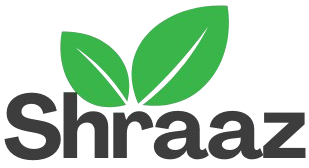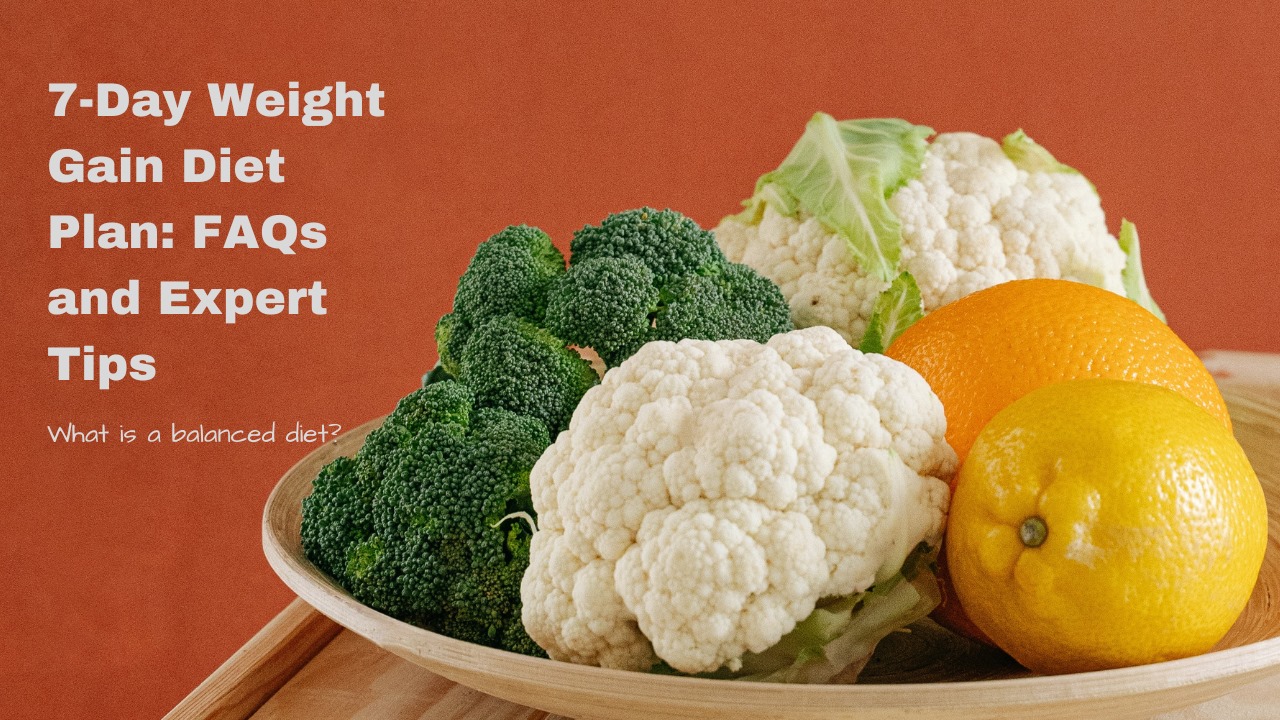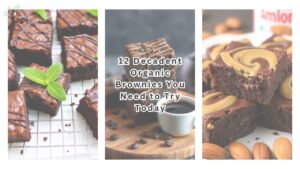1. Understanding the Basics of Weight Gain
When it comes to weight gain, the process is relatively straightforward, but it’s important to understand that it isn’t just about eating more food. Gaining weight, especially in a healthy and sustainable manner, involves creating a caloric surplus, consuming nutrient-dense foods, and maintaining a balance between all macronutrients. In Pakistan, where foods rich in carbs and fats are common, adopting the right approach is crucial to avoid gaining unhealthy weight that could lead to long-term health problems.
Weight gain can be broken down into two main types: muscle gain and fat gain. While most people want to focus on building muscle, others may be more concerned with adding general body mass. Understanding which type of weight gain you’re aiming for will help guide your diet. A muscle-gain focus requires a combination of protein-rich foods, adequate carbohydrates, and healthy fats.
Key Points to Consider:
- Caloric surplus: Consuming more calories than your body needs.
- Balance of nutrients: Ensuring a mix of proteins, carbs, and fats.
- Avoiding empty calories: Opting for nutrient-dense foods instead of junk food.
- Sustainable pace: Gaining weight too quickly can lead to health issues, so aim for 0.5 to 1 kg per week.
For example, a balanced meal might include a plate of roti, lentils, chicken curry, and a serving of salad. This gives you a good balance of carbs, proteins, and fats, helping you achieve your goal in a healthier way.
| Macronutrient | Recommended Source |
| Carbohydrates | Roti, rice, potatoes, fruits |
| Proteins | Chicken, beef, lentils, eggs |
| Fats | Ghee, butter, nuts, olive oil |
2. Setting Realistic Weight Gain Goals
When you’re on a weight gain journey, it’s essential to set realistic goals to track your progress and stay motivated. Trying to gain too much weight too fast can lead to unhealthy fat accumulation and potential health risks, like high cholesterol or blood pressure issues, both of which are common in Pakistan.
Why Setting Goals Matters:
- Manageable expectations: Unrealistic goals can cause frustration.
- Sustainable weight gain: Achieving 0.5 to 1 kg per week is a healthy goal.
- Focus on muscle gain: Aiming for muscle gain rather than just body fat ensures healthier weight gain.
To calculate your daily caloric needs, use a Basal Metabolic Rate (BMR) calculator and add around 500-700 calories daily for a moderate weight gain. Ensure your diet is structured to meet this caloric surplus without depending on junk foods.
Here’s an example plan for gaining weight over a week:
| Day | Calories Target | Meals and Snacks Suggestions |
| 1 | 2500-2700 | Paratha with omelet, Chicken biryani |
| 2 | 2500-2700 | Lentil soup, Beef kebabs with naan |
| 3 | 2500-2700 | Mutton pulao, Fruit chaat |
Tracking your progress weekly with weigh-ins can help you adjust your diet as needed. Weight gain isn’t about reaching a target in one week; it’s about understanding your body’s needs and feeding it accordingly.
3. The Importance of Caloric Surplus
A caloric surplus is the cornerstone of weight gain. This means consuming more calories than your body burns in a day. For people living in Pakistan, where foods like biryani, nihari, and parathas are widely consumed, maintaining a caloric surplus can be relatively simple, but the challenge lies in doing so healthily.
Eating too much of the wrong foods can lead to excess fat gain, which isn’t desirable. On the other hand, a caloric surplus combined with balanced nutrition ensures that your body is receiving the right kind of fuel for building muscle and adding healthy weight.
Tips for Creating a Healthy Caloric Surplus:
- Increase portion sizes: Gradually increase the amount of food on your plate.
- Include calorie-dense foods: Foods like ghee, nuts, and full-fat dairy are calorie-dense and aid in weight gain.
- Avoid sugary junk food: It’s tempting to increase calories with sugary snacks, but they offer little nutritional value.
For example, if your current daily intake is around 2000 calories and you want to gain weight, you’ll need to consume around 2500-2700 calories. However, focusing on wholesome, nutrient-dense meals such as mutton korma with whole-wheat naan instead of oily fast foods will help you achieve this in a healthier way.
A sample caloric breakdown could look like this:
| Meal | Calories |
| Breakfast | 600 |
| Lunch | 800 |
| Snacks | 300 |
| Dinner | 900 |
| Total | 2600 |
4. Incorporating High-Calorie Foods into Your Diet
In order to reach your caloric surplus for weight gain, it’s important to incorporate high-calorie, nutrient-dense foods into your diet. Pakistan’s culinary tradition offers plenty of high-calorie dishes that, when consumed in moderation and with balance, can help you gain weight in a healthy manner.
Examples of High-Calorie Foods:
- Full-fat dairy: Milk, cheese, yogurt, and butter are excellent sources of healthy fats and proteins.
- Nuts and seeds: Almonds, peanuts, and sunflower seeds are rich in healthy fats and calories.
- Meats: Chicken, beef, and mutton are calorie-dense and contain high-quality proteins.
- Desi ghee: A traditional cooking fat, ghee is high in calories and can be used in various dishes like parathas and curries.
It’s important to strike a balance between consuming these high-calorie foods and ensuring that your body gets the right amount of vitamins and minerals. Try to avoid empty calories from fast food and sugary drinks.
| High-Calorie Food | Serving Size | Approximate Calories |
| Desi Ghee | 1 tbsp | 120 |
| Mutton | 100g | 294 |
| Almonds | 28g (handful) | 160 |
Incorporating these foods into your meals can make it easier to achieve your caloric surplus, while also keeping your diet nutritious and wholesome.
5. Healthy Fats for Weight Gain
Fat is a macronutrient that plays a vital role in helping you gain weight, as it provides more calories per gram compared to proteins and carbohydrates. Incorporating healthy fats into your diet ensures that you’re getting quality calories without overloading your system with unhealthy options.
Sources of Healthy Fats:
- Olive oil: Rich in monounsaturated fats and antioxidants.
- Nuts and seeds: Provide omega-3 and omega-6 fatty acids, essential for overall health.
- Fatty fish: Salmon, mackerel, and sardines are high in omega-3 fatty acids.
- Desi ghee and butter: Widely used in Pakistani households, they are calorie-dense but should be consumed in moderation.
Here’s an example of how you can include healthy fats in your daily meal:
| Meal | Fat Source |
| Breakfast (paratha) | Desi ghee |
| Lunch (salad) | Olive oil dressing |
| Snack (trail mix) | Almonds, walnuts |
6. Protein-Rich Foods for Muscle Building
Proteins are essential for muscle repair and growth, especially when you’re trying to gain weight through muscle rather than just fat. A balanced intake of protein helps your body rebuild muscle tissues that break down during physical activities like weightlifting or even daily chores. In Pakistan, there are many delicious protein-rich food options that can easily be integrated into your weight gain plan.
Common Protein Sources in Pakistan:
- Chicken and Beef: High-quality animal protein, found in dishes like chicken karahi or beef kebabs.
- Eggs: A cost-effective and versatile protein source.
- Lentils (Daal): Lentils like moong dal or masoor dal are a great plant-based protein option.
- Fish: Freshwater fish like rohu or mahseer are excellent sources of lean protein and omega-3 fatty acids.
Protein not only aids in muscle repair but also helps in keeping you full for longer, thereby helping you avoid unhealthy snacking. Make sure to include a source of protein in each meal to maintain a balanced diet.
Here’s an example of how you can structure your protein intake for the day:
| Meal | Protein Source | Grams of Protein |
| Breakfast | 2 boiled eggs | 12g |
| Lunch | Chicken biryani | 30g |
| Snack | Dahi (yogurt) with nuts | 15g |
| Dinner | Beef curry with roti | 25g |
| Total | 82g |
It’s essential to ensure you’re getting enough protein, as recommended by your body weight. The average target is around 1.5 to 2 grams of protein per kilogram of body weight for muscle building. If you weigh 70 kg, aim for 105-140 grams of protein per day.
7. Carbohydrates for Sustained Energy
Carbohydrates are a major source of energy, especially when you’re looking to gain weight in a healthy manner. They provide the fuel your body needs to carry out daily tasks and intense workouts, which is critical if your focus is on muscle gain. In a Pakistani diet, carb sources are abundant, making it easier to create balanced meals that help you achieve your weight goals.
Common Carbohydrate Sources:
- Roti and Naan: Staples in almost every meal, roti and naan are excellent sources of carbs.
- Rice: Whether it’s plain boiled rice or delicious biryani, rice offers a high-carb base for any meal.
- Potatoes: Versatile and calorie-dense, potatoes can be enjoyed in various forms like aloo ki bhujia or mashed potatoes.
Including a good amount of carbs in your meals ensures sustained energy throughout the day. Moreover, when paired with proteins and fats, they provide a complete, balanced meal that supports weight gain.
For example, a typical day might look like this in terms of carb intake:
| Meal | Carbohydrate Source | Grams of Carbohydrates |
| Breakfast | Paratha with ghee | 40g |
| Lunch | Chicken pulao | 60g |
| Snack | Banana and yogurt | 30g |
| Dinner | Aloo gosht with roti | 70g |
| Total | 200g |
Carbohydrates are essential for muscle glycogen replenishment, especially after workouts. Aim to include complex carbs that provide slow-releasing energy throughout the day rather than simple sugars that offer only a quick spike in energy.
8. Importance of Frequent Meals and Snacking
Eating frequently is one of the easiest ways to increase calorie intake and maintain a caloric surplus needed for weight gain. Instead of relying on three large meals, try to incorporate small, frequent meals and snacks throughout the day. In Pakistan, snacking options like samosas, pakoras, and dahi bhallas can easily contribute to your daily calorie intake, but healthier snack options like trail mix, dates, and fruit smoothies can help you gain weight without compromising on nutrition.
Sample Meal Plan 1:
- Breakfast: Paratha with eggs and yogurt.
- Mid-morning snack: A handful of almonds and a banana.
- Lunch: Mutton curry with rice.
- Afternoon snack: A smoothie made with full-fat milk, dates, and peanut butter.
- Dinner: Roti with chicken karahi and salad.
- Evening snack: A bowl of dahi with honey and nuts.
Sample Meal Plan 2:
- Breakfast: Two omelets made with vegetables (onions, tomatoes, spinach) and 2 slices of whole grain toast with butter.
- Mid-morning snack: Chana chaat (chickpeas with tomatoes, onions, and lemon) and a glass of fresh lassi.
- Lunch: Beef pulao with a serving of raita and salad (cucumbers, onions, tomatoes).
- Afternoon snack: A glass of mango milkshake made with full-fat milk and a handful of mixed nuts (almonds, walnuts).
- Dinner: Chapati with fish curry (rohu or mahseer) and a side of boiled potatoes.
- Evening snack: Dahi with jaggery (gur) and almonds.
Sample Meal Plan 3:
- Breakfast: Two parathas with desi ghee, served with chicken keema and a cup of chai (tea) with full-fat milk.
- Mid-morning snack: A glass of banana shake with a tablespoon of honey and handful of cashews.
- Lunch: Chicken biryani with a side of boiled eggs and yogurt.
- Afternoon snack: Fruit chaat (bananas, apples, pomegranates) with chopped dates and a glass of milk.
- Dinner: Chapati with mutton korma and a side of daal (lentils).
- Evening snack: Sooji halwa made with milk and ghee.
By splitting meals like this, you ensure that your metabolism is constantly fueled, and you can easily meet your calorie requirements for the day.
Tips for Effective Snacking:
- Choose nutrient-dense snacks: Instead of chips or candy, opt for calorie-dense and nutrient-rich snacks like nuts, seeds, and fruits.
- Use full-fat dairy: Adding full-fat yogurt or milk to your snacks provides additional calories and essential nutrients.
- Make smoothies: A high-calorie smoothie is a great way to get in extra calories without feeling overly full.
Frequent meals help ensure your body is constantly supplied with nutrients for muscle growth and energy, which is especially important during a weight gain phase.
9. Hydration and Its Role in Weight Gain
While it’s easy to overlook hydration when focusing on food, drinking enough water is essential for effective weight gain. Staying hydrated ensures that your body can properly digest and absorb nutrients, and it helps support muscle recovery and growth. Many Pakistani dishes are high in salt, which can increase water retention, so it’s essential to maintain proper hydration to avoid bloating and digestive discomfort.
Importance of Hydration:
- Supports digestion: Water helps break down food and ensures nutrient absorption.
- Prevents overeating: Drinking water between meals can help avoid the discomfort of overeating, allowing you to maintain frequent meals.
- Boosts muscle recovery: Proper hydration helps repair muscles after intense physical activity.
You should aim for 8-10 glasses of water a day. However, this can vary based on your activity level and diet. For instance, if you are consuming more salt-heavy dishes like nihari or korma, you may need to increase your water intake to balance out sodium levels.
10. Tracking Progress and Adjusting the Plan
The last, but equally important, step in your 7-day weight gain journey is tracking your progress. Keeping a close watch on your daily intake and weekly weight gain can help you make necessary adjustments to your diet or exercise routine. For people in Pakistan, where portion sizes can sometimes be difficult to control, tracking food intake will ensure that you stay on track with your goals.
How to Track Your Progress:
- Weigh yourself weekly: This gives you an idea of how much weight you’ve gained and whether your caloric intake needs to be adjusted.
- Use food tracking apps: Apps like MyFitnessPal can help you monitor your daily calories and macronutrient intake.
- Adjust your diet as needed: If you’re not gaining weight, increase your caloric intake by 200-300 calories per day and monitor the effects.
| Week | Target Weight Gain (kg) | Adjustments Needed |
| 1 | 0.5-1 | No adjustment needed |
| 2 | 0.5-1 | Add more snacks |
Tracking ensures that your weight gain is gradual, healthy, and aligned with your fitness goals. If you find that you’re not gaining as expected, adding more frequent snacks or increasing portion sizes might be necessary.
FAQ: 7 Most Asked Questions Regarding a 7-Day Weight Gain Diet Plan
1. Can I gain a noticeable amount of weight in just 7 days?
Yes, it’s possible to gain weight in 7 days, but the amount will largely depend on your starting point and how many extra calories you consume. Generally, a healthy goal is to gain 0.5 to 1 kg (1-2 lbs) per week by consuming an additional 300-500 calories per day. Focus on nutrient-dense, high-calorie foods to achieve this goal in a healthy way.
2. What are some healthy, high-calorie foods I can eat to gain weight quickly?
Incorporating calorie-dense yet healthy foods is key for weight gain. Some examples include:
- Full-fat dairy: Milk, yogurt, cheese.
- Nuts and seeds: Almonds, walnuts, chia seeds.
- Nut butters: Peanut butter, almond butter.
- Starchy foods: Potatoes, sweet potatoes, rice.
- Healthy fats: Avocados, olive oil.
- Protein-rich foods: Eggs, chicken, lentils, fish.
Including these in each meal will help you increase your calorie intake without relying on junk food.
3. Should I eat more frequently or stick to three big meals a day?
Eating more frequently is highly recommended when trying to gain weight. Instead of three large meals, aim for 5-6 smaller meals throughout the day, including snacks. This helps you consume more calories without feeling overly full. Include nutrient-dense snacks like trail mix, smoothies, or boiled eggs between meals.
4. What should I avoid while trying to gain weight?
While the goal is to increase your calorie intake, it’s important to avoid unhealthy options like:
- Sugary foods: Sodas, sweets, and pastries may add calories but provide little nutrition.
- Processed foods: These are often high in unhealthy fats and additives that don’t contribute to muscle gain or long-term health.
- Fried and oily foods: Though calorie-dense, they can lead to unhealthy fat accumulation and other health issues.
Focus on whole, unprocessed foods that provide essential vitamins, proteins, and healthy fats.
5. Do I need to exercise while following a weight gain diet?
Yes, exercise is essential for healthy weight gain, especially if you want to gain muscle rather than fat. Focus on strength training (like weight lifting or resistance exercises) to build muscle mass. This not only helps you gain weight in a healthy manner but also boosts your appetite, making it easier to consume more calories. Avoid excessive cardio, as it can burn calories and hinder weight gain.
6. Can I follow this weight gain plan without using supplements or protein powders?
Yes, it’s possible to follow a healthy weight gain plan without supplements or protein powders. By consuming natural, high-protein foods like eggs, chicken, yogurt, lentils, and milk, you can meet your protein needs. If you’re finding it difficult to meet your caloric or protein goals, you can then consider a protein shake as a convenient option.
7. How can I avoid bloating while eating more food?
Bloating can be a common issue when increasing food intake. Here are a few tips to avoid discomfort:
- Drink plenty of water: Proper hydration aids digestion and reduces bloating.
- Eat smaller, frequent meals: Spacing out your meals prevents your stomach from feeling overly full.
- Avoid foods that trigger bloating: Foods like beans, carbonated drinks, and high-salt dishes can cause bloating.
- Chew your food thoroughly: Eating slowly helps your body digest the food better.
By balancing your meals with fiber, proteins, and healthy fats, you can minimize bloating while increasing your calorie intake.




